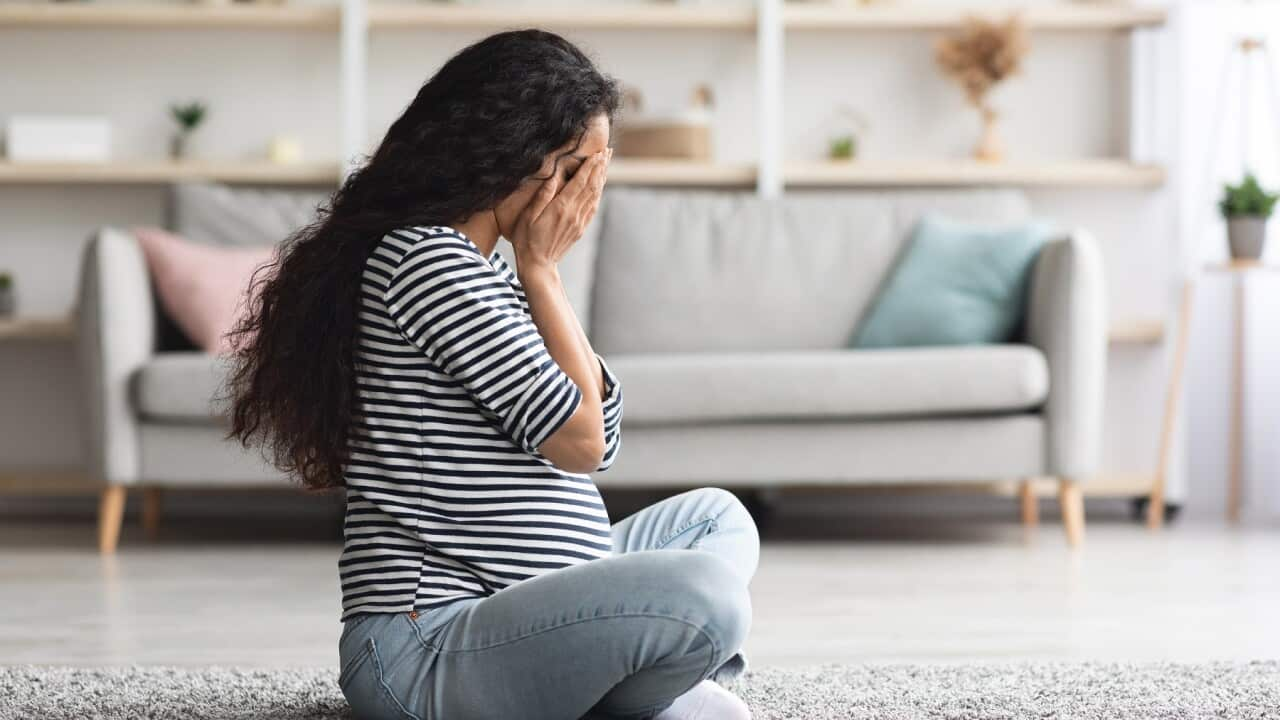TRANSCRIPT
The loss of an infant through a miscarriage or stillbirth can devastate aspiring parents with the grief sometimes overwhelming.
New data from an organisation set up to support the emotional wellbeing of expectant and new parents, the Gidget Foundation, shows an increasing number of aspiring parents have difficulty sharing their emotions.
Katie Peterson, clinical psychologist for the Gidget Foundation, says the data is distressing.
"So, at the Gidget Foundation, we have found that two-in-five Australian parents felt alone in their grief after experiencing a miscarriage and two-in-five did not want to burden others with navigating their grief. We also know that fathers who have experienced stillbirth and infant loss, two-in-five feel people were dismissive or minimised their loss."
Annabel is a mother of five children.
One of her babies, Miles, was stillborn after he was diagnosed with a brain haemorrhage in utero.
She says the loneliness she felt made the experience even more difficult to handle.
"I lost my fourth child to stillbirth when I was about six months pregnant. And from my experience, I found the time after losing our child, Miles to be incredibly lonely. It was a grief which shocked me as so many people don't talk about their experiences with baby loss. And this silence made it even harder because I felt like I couldn't truly express how I was feeling."
Brittany is another woman who's had to suffer through the pain of a stillbirth.
She says that even though she had support, she felt both lost and lonely.
"My experience with pregnancy loss, I found it to be really lonely and (I felt) just lost at times as well. But I think the journey (is important) as well. I've had different moments throughout where I've had a lot of support, which has been really comforting, but then the loneliness can sort of prevail as well, again."
For many people, these confronting life events are taboo.
Brittany says the stigma surrounding this topic needs to be broken so people can be more open with their feelings.
"I think it's so important to break the stigma because there are so many women and men that do suffer in silence and it's horrible. And I think the lives of the little ones that have been lost do deserve to shine through. So I think it's a really important thing to talk about."
The Gidget Foundation's Katie Peterson explains this stigma is borne out of a misplaced sense of guilt carried by the parents who feel they don't want to burden others.
"I think parents can often feel uncomfortable talking about their grief with others. They might not want to burden them or they might think that others don't understand. And I think it's important that we let others know, family and friends, that there are ways to support parents who have experienced this loss by checking in with them, being available to listen and offering practical support as needed."
Brittany advises any couples dealing with miscarriage to not remain silent.
"Make a plan to seek support and be open and honest about how those around you can best support you, like what feels right for you in that moment and to not be afraid to share your story or speak for what you think is right."
Annabel says there is a lot of support out there for couples who seek help.
"Reaching out for help can be absolutely vital in your grief and surviving and navigating grief. And there is a lot of help out there and particularly in the baby loss community, there are a lot of support networks and, from a clinical perspective, organisations like the Gidget Foundation Australia do provide clinical support during such a hard time."
Clinical Psychologist Katie Peterson says the best way to offer support to people in these circumstances is to be present and let them know you care.
"I think just checking in with them, being available to listen and offering really practical things, such as maybe meals or, just being available."













